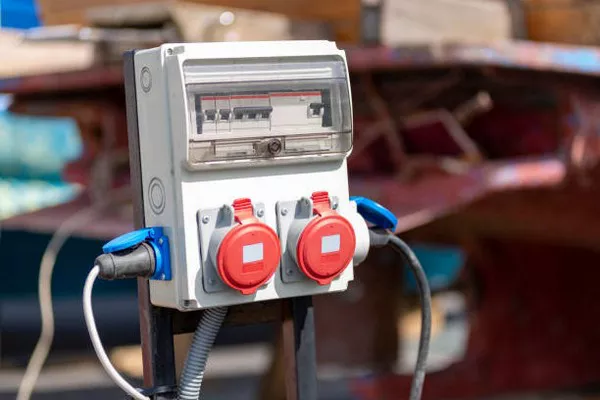What does it entail to delve into the world of Instrumentation and Electronics Engineering? This multidisciplinary field merges aspects of electrical engineering, computer science, and physics to design and develop cutting-edge systems used across various industries. Let’s delve deeper into this fascinating domain, understanding its core principles, applications, and the exciting innovations it continues to drive.
What is Instrumentation Engineering?
Instrumentation Engineering focuses on the design, development, and maintenance of systems used to measure, monitor, and control physical quantities. These quantities range from temperature, pressure, flow, and level to chemical composition and more. In essence, it’s about transforming physical parameters into electrical signals that can be processed, analyzed, and acted upon. A crucial aspect of instrumentation engineering is precision—ensuring that the measurements are accurate, reliable, and responsive in real-time.
Instruments developed by instrumentation engineers are integral across industries like manufacturing, healthcare, aerospace, and environmental monitoring. For instance, in manufacturing, instrumentation is pivotal for quality control, ensuring products meet stringent specifications. In healthcare, instruments are used in medical imaging systems, patient monitoring devices, and laboratory equipment. The field’s impact extends to environmental monitoring, where sensors help track air and water quality, enabling early detection of pollutants and contributing to sustainability efforts.
What Does Electronics Engineering Entail?
Electronics Engineering is a discipline focused on the study and application of electrical circuits, devices, and systems. It deals with the design, fabrication, and operation of electronic devices and equipment used in various sectors, from consumer electronics to industrial automation and telecommunications. At its core, electronics engineering involves the manipulation of electrons within different media to achieve specific outcomes.
One of the fundamental principles in electronics engineering is understanding semiconductor devices, such as diodes and transistors, which form the building blocks of modern electronics. The discipline encompasses diverse areas such as analog and digital electronics, embedded systems, power electronics, and signal processing. In recent years, fields like nanotechnology and microelectronics have gained prominence, leading to the development of smaller, more efficient electronic devices with advanced functionalities.
Integration of Instrumentation and Electronics Engineering
How do Instrumentation and Electronics Engineering converge to drive innovation? The integration of these disciplines is exemplified in the design of sophisticated measurement and control systems that utilize electronic components. Instrumentation engineers leverage electronic circuits and sensors to develop precise instruments capable of measuring and processing signals from the physical world. These signals are then converted into digital data that can be analyzed, stored, and used for decision-making.
The synergy between instrumentation and electronics engineering is evident in automation technologies. Industrial automation relies heavily on sensors, actuators, and control systems to monitor and optimize manufacturing processes. These systems are designed using a blend of electronics for signal processing and instrumentation for accurate measurement and control. Additionally, advancements in microelectronics have led to the miniaturization of sensors and data acquisition systems, expanding their applicability across diverse fields.
Applications of Instrumentation and Electronics Engineering
What are the real-world applications of Instrumentation and Electronics Engineering? This field has a profound impact on industries ranging from healthcare to energy production, transportation, and beyond. In healthcare, instrumentation plays a critical role in medical imaging modalities like MRI, CT scans, and ultrasound, enabling non-invasive diagnosis and treatment planning. Electronic devices such as pacemakers and insulin pumps rely on precise sensors and control systems to function reliably within the human body.
In the energy sector, instrumentation and electronics are pivotal for monitoring and controlling power generation, distribution, and consumption. Smart grids leverage advanced metering systems equipped with electronic sensors to optimize energy usage and facilitate renewable energy integration. The transportation industry benefits from instrumentation through vehicle control systems, navigation aids, and safety features that enhance efficiency and safety on roads and in aviation.
Emerging Trends and Future Prospects
What are the emerging trends shaping the future of Instrumentation and Electronics Engineering? As technology continues to evolve, this field is witnessing rapid advancements in areas such as Internet of Things (IoT), artificial intelligence (AI), and wearable technology. IoT devices, comprising interconnected sensors and actuators, are revolutionizing industries by enabling real-time data collection and analysis for predictive maintenance and process optimization.
AI and machine learning are transforming instrumentation by enabling autonomous systems capable of adaptive control and decision-making based on complex datasets. Wearable electronics, equipped with sensors for health monitoring and activity tracking, are becoming increasingly popular for personal health management. Moreover, the integration of renewable energy sources with smart grids and energy storage systems highlights the importance of instrumentation and electronics in building sustainable infrastructures for the future.
See Also Who Improved The Anemometer? All You Need to Know
In conclusion, Instrumentation and Electronics Engineering represent a dynamic field at the intersection of technology and innovation. This discipline not only drives progress across industries but also opens avenues for addressing global challenges such as sustainability and healthcare accessibility. As the demand for smart, interconnected systems grows, the role of instrumentation and electronics engineers will continue to expand, shaping the technological landscape of tomorrow.

